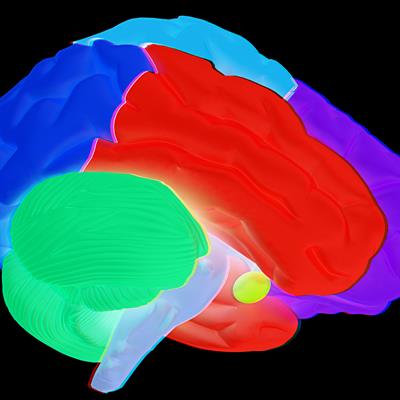vinoth jagaroo
Emerson College
Boston, United States
1,416
Total downloads
14k
Total views and downloads
Submit your idea
You will be redirected to our submission process.
Submission deadlines
Manuscript Summary Submission Deadline 1 April 2026 | Manuscript Submission Deadline 1 August 2026
This Research Topic is currently accepting articles.
Numerous subdisciplines in neuroscience have realized exponential gain through seamless integration with neuroinformatics (NI). Their swift NI-enabled scientific evolution has borne complex computational data dimensions. However, neuropsychology, a subdiscipline in clinical neuroscience, has lagged far behind in terms of the realization of NI.
Neuropsychological practice is dominated by Neuropsychological Assessment-- where a patient’s cognitive functioning is appraised, often following a brain insult. Neuropsychological assessment represents the only formal, standardized, instrument-driven method of cognitive assessment in the clinical context, and is integral to cognitive profiling of patients. However, it has been anchored in the decades-long tradition of conventional “paper-and-pencil” tools. While many neuropsychological tests are available in computer-administered versions, computerized assessment has amounted to little more than administering the original test on a computer. These legacy instruments and the mode of assessment they have come to define, remain largely incompatible with 21st-century brain science.
Over the last 15 years, there has been an emerging discussion on the need for neuropsychology to reinvent itself in order to incorporate advances in neuroscience. However, this discussion has been strikingly disordered. Reflected in the discussion are different levels of appreciation of what the omics/systems biology revolution means for neuropsychology. To NI-neuropsychology proponents, it means that neuropsychology has to move away from vague cognitive constructs (such as “cognitive control” and “visuospatial”) and instead define precise cognitive phenotypes, which it must strive to associate with precisely defined neural systems. This perspective argues that neuropsychological constructs must be aligned with the genome-to-phenome relational matrix -- the operating backbone of systems biology. This means that neural systems need to be explained as products of underlying gene network determinants and underlying neural development factors and that the neurocognitive expressions need to be explained as emergent patterns of neural circuits or neural dynamics. This necessarily calls for a neuroinformatics framework.
Another perspective, and arguably a major source of confusion in the discussion, is the call for neuropsychology to actively embrace “technology” of the time. This position implicitly bundles NI together with computers, virtual reality, automated assessment, or anything digital, and does not subscribe to a clear scientific or guiding theoretical framework. Yet another tack in the discussion has been the notion that conventional neuropsychological batteries can simply be ‘rehabilitated’ to meet the new “technological” environment, or that by merely creating a data infrastructure fed by conventional assessment data, a significant advance will be achieved.
NI in neuropsychology, in light of the power of the multi-omics landscape, can only move in one direction, that is to develop rapidly and widely. Yet, the profound lack of a sophisticated framing and organization of the discourse only hinders progress. This Research Topic on Neuroinformatics for neuropsychology aims to organize, frame, and interrogate the larger topic by breaking it down into its key themes and by positioning various ideas, perspectives, and contributions, within the larger topical matrix.
We invite authors to contribute manuscripts—original research, reviews, methodology, opinion pieces, and descriptions of informatics developments —relating to any of the following themes:
The Genome-to-Phenome Matrix in Systems Neuroscience as a Model for Neuropsychology
Refining Cognitive Constructs, Cognitive Phenotypes, and Ontologies
Neural and Neuroanatomical Systems and Circuits in Relation to Cognitive Operations
Local and Distributed Neural Oscillatory and Timescale Patterns in the Cognitive States
Informatics Platform and Software Development for Neuropsychology
Algorithms and Data Science Methods for Neuropsychological Informatics and Assessment
Consortia, Research Ecosystems, Data Pipelines, and Data Architecture
Health Information Systems and Medical Record Systems – Neuropsychological Considerations
Reconfiguring Graduate Training in Neuropsychology in the Era of Omics and Neuroinformatics

This Research Topic accepts the following article types, unless otherwise specified in the Research Topic description:
Articles that are accepted for publication by our external editors following rigorous peer review incur a publishing fee charged to Authors, institutions, or funders.
Article types
This Research Topic accepts the following article types, unless otherwise specified in the Research Topic description:
Keywords: Neuroinformatics, neuropsychology, Cognitive Phenotypes, Systems Neuroscience
Important note: All contributions to this Research Topic must be within the scope of the section and journal to which they are submitted, as defined in their mission statements. Frontiers reserves the right to guide an out-of-scope manuscript to a more suitable section or journal at any stage of peer review.
Manuscripts can be submitted to this Research Topic via the main journal or any other participating journal.
Submit your idea
You will be redirected to our submission process.
Share on WeChat
Scan with WeChat to share this article
